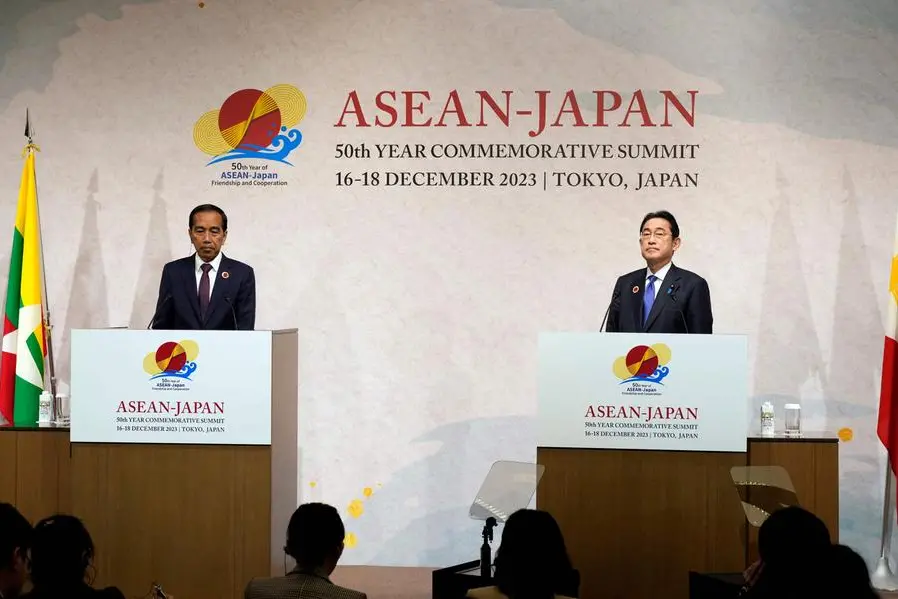PHOTO
Southeast Asian and Japanese leaders agreed on Sunday to boost dialogue and cooperation in "maritime security" in the face of China's growing assertiveness in the region.
Beijing claims almost the entire South China Sea, a vital trade corridor, and its increased deployment of vessels and other methods to assert its claims in disputed areas have riled nations across the region as well as Washington.
Japan and the Association of Southeast Asian Nations (ASEAN) agreed to "strengthen dialogue and cooperation for the maintenance of maritime security and safety, maritime order based on the rule of law, including freedom and safety of navigation and overflight and unimpeded commerce", a joint statement said after a summit in Tokyo.
Without identifying China, it said that they will "enhance maritime domain awareness as well as cooperation among coastguards and relevant law enforcement agencies, strengthen cooperation on maritime capacity building, and ensure the resolution of disputes by peaceful means, without resorting to threat or use of force in accordance with universally recognized principles of international law".
Close US ally Japan, which also has territorial and other disputes with China, is hiking defence spending and has expanded security cooperation with countries across the Asia-Pacific region.
Japan announced on Saturday it would deepen ties with Malaysia and provide 400 million yen ($2.8 million) for "warning and surveillance" equipment.
Japan agreed last month to help the Philippines buy coastguard vessels and to supply a radar system, and the two are discussing allowing troop deployments on each other's soil.
Japan expressed "serious concern" last week about "dangerous actions" after the latest tense confrontation between Philippine and Chinese vessels at flashpoint reefs, which included a collision and Chinese ships shooting water cannon.
Philippine President Ferdinand Marcos said in an interview with Japan's public broadcaster NHK on Saturday "the situation in the (South) China Sea has grown more and more complicated".
His office quoted him as saying that a more assertive China posed a real challenge to its neighbours in Asia, and that Manila would deepen cooperation with Tokyo, Washington and other like-minded countries by conducting joint exercises.





















